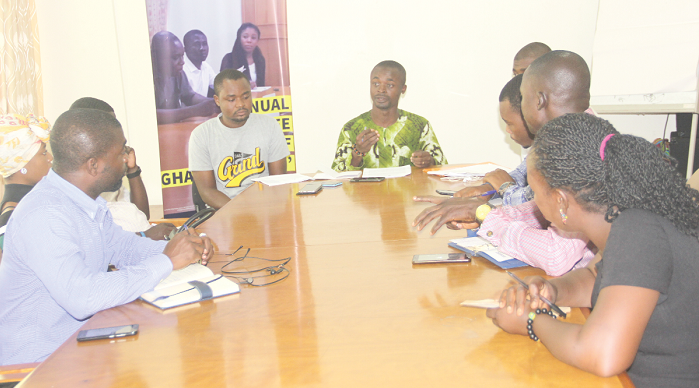
‘Don’t support efforts to reverse ban on hunting marine mammals’
The Ghana Wildlife Society (GWS) has called on the government not to support efforts being made by some countries to reverse the ban on the hunting and killing of whales and other marine mammals.
Advertisement
However, some countries such as Japan, Norway
At a news conference in Accra yesterday, the GWS described any attempt to force the lifting of the ban as detrimental to both human and animal life because whales constituted an integral part of the marine ecosystem that provided oxygen to support human and animal life.
Regulations
The Executive Director of the GWS,
He noted that any attempt by Ghana to join Japan and its allies to advocate the reversal of the moratorium would compromise the Wildlife Conservation Regulations, 1971 (LI 685), that protect marine mammals from being hunted and killed.
“The conservation of marine biodiversity is also covered under sections 90 and 91 of the Fisheries Act, 2002 (Act 525), the Fisheries Regulation of 2010 (LI 1968) and the National Fisheries Plan of Ghana.
“Ghana needs to join countries such as the United States, Britain
Whales sanctuary
He noted that the initiative would help protect the marine ecosystem,
“The government is seeking to use the marine drive to promote domestic tourism through the watching of whales as one of the components of the marine drive initiatives. It cannot go to support moves that will kill whales,” he added.
He also said if the country failed to support the establishment of the SAWS, it would have national security implications because the floodgates would be opened for foreign vessels to hunt for whales within Ghana’s territorial waters.
Expertise
A member of the GWS research team,
He said that move could compromise the voting pattern and spell doom for Ghana’s marine ecosystem if advocates for the lifting of the ban had their way.
He was also worried that the government failed to tap into the expertise of people who were knowledgeable in that area but relied only on officials of the Ministry of Fisheries and Aquaculture Development (MOFAD).



